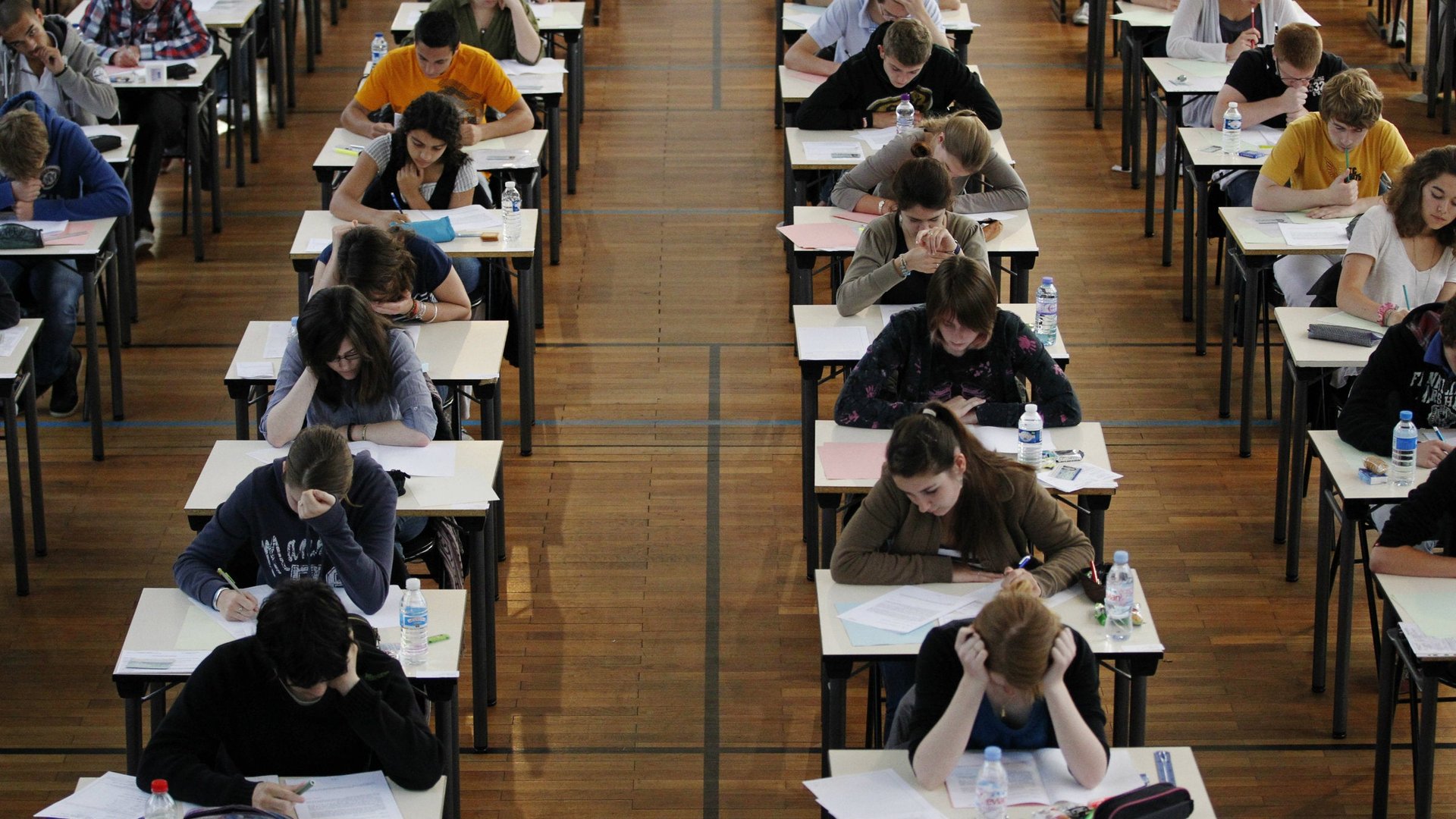That 200-year-old French exam everyone says is obsolete? It looks a lot like the SAT
The waiting game is on in France. More than 600,000 people in France have just wrapped up the test needed to secure a high-school diploma, the baccalauréat (better known as le bac) and results should be out next week. Today’s New York Times reports on general disillusionment with the exam, saying it “focuses too little on logic or creativity … and too much on rote knowledge and the esoterica that thrill the Parisian cultural aristocracy.”


The waiting game is on in France. More than 600,000 people in France have just wrapped up the test needed to secure a high-school diploma, the baccalauréat (better known as le bac) and results should be out next week. Today’s New York Times reports on general disillusionment with the exam, saying it “focuses too little on logic or creativity … and too much on rote knowledge and the esoterica that thrill the Parisian cultural aristocracy.”
And indeed, the questions on the philosophy exam—a version of which is administered to every student taking the bac— are pretty high-falutin’. But as at least one French newspaper observed (link in French), a lot of the test is remarkably pertinent for people entering adulthood today in France—and the world over.
Students taking the scientific track of the bac, for instance, are offered a choice of three questions in philosophy:
- Can one act morally without taking an interest in politics?
- Does one’s work allow one to attain self-awareness?
- What is a true judgment?
In the economic and social track, they ponder:
- What do we owe the state?
- Does one interpret things rather than knowing them?
- Analyze a passage from St. Anselm’s 12th-century De Concordia. [The passage in question is about free will; a French version is here, and an English version appears here, p. 21]
Students on the literature track must answer one of the following:
- Is language nothing but a tool?
- Is science limited to establishing facts?
- Analyze a passage from one of Descartes’ Letters to Elizabeth, 1645. [On the importance of seeing oneself as a member of a society. French version; English version, p. 29]
Other tracks pose such brain-twisters as “Does being free mean obeying no law?” and “Does cultural diversity divide people?“
As the French grapple with how to make the test more useful and relevant, it’s worth noting that Americans and their standardized tests are moving towards the aristocratic as well. Consider this month’s essay portion of the SAT. Students were asked to choose from one of the following prompts and write with a point of view. A distilled version of those questions:
- Is it possible for a society to be fair to everyone?
- Can the study of popular culture be as valuable as the study of traditional literary and historical subjects?
- Is strong moral character the most important qualification for a leader?
- Do people need to know the source of any information before they use it?
No Descartes references, but at least this line of questioning forces students to do more than just regurgitate facts and figures; it requires them to connect dots and see the big picture. To think—therefore, to be.